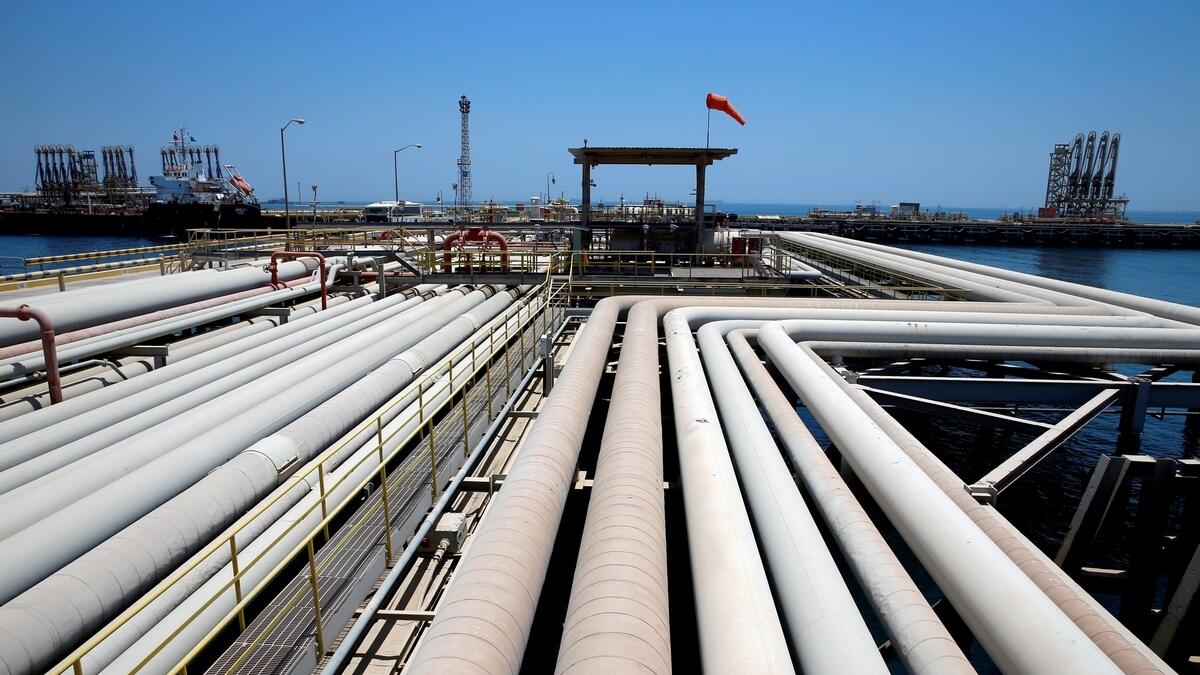The EU has unilaterally reached a tentative deal to impose a price cap on the sale of Russian oil to third countries, Politico Europe reported on Tuesday citing diplomatic sources.
Cyprus, Greece and Malta had concerns about the potential impact on their shipping industries, but were reportedly promised concessions.

The price cap is part of an eighth round of anti-Russia sanctions, which Brussels is expected to roll out this week, citing the so-called proxy conflict in Ukraine.
EU ambassadors reached an agreement on Tuesday and expect to approve the final text on Wednesday, Politico reported citing seven diplomats – all of whom wished to remain anonymous.
Details of the sanctions still need to be confirmed in writing, and there was a limited chance the deal could still unravel. The three Mediterranean members were reportedly concerned about the impact of the restrictions on their commercial shipping.
:quality(70)/cloudfront-eu-central-1.images.arcpublishing.com/thenational/V54FXFSDTKX7TS65MH66LFIRWE.jpg?resize=696%2C464&ssl=1)
But Brussels offered concessions in the form of a monitoring system that would propose measures to mitigate the impact of the embargo, in case of significant loss of business due to practices such as re-flagging of commercial vessels.
The EU has already banned the import of coal from Russia, with an oil embargo scheduled to go into effect in December, 2021.
The price cap seeks to block Moscow’s petroleum exports to third countries using EU-registered vessels, as the bloc has already sanctioned all Russian shipping.
Meanwhile, Hungary said it had secured assurances the price cap won’t apply to oil delivered through pipelines. Anti-Russia measures adopted by the USA and its allies have led to a spike in oil prices, leaving Russia with more revenue from exports than before the embargo.
The price cap proposed by the G7 seeks to neutralize this. According to the proposal, EU vessels will refuse to carry Russian oil if it is priced above the cap, the value of which has yet to be determined.

The sanctions have also resulted in the EU facing severe energy shortages. However, the bloc’s leaders have vowed to support Ukraine indefinitely, no matter what.
Moscow has made it clear it will not comply with the price cap scheme, with Deputy Prime Minister Alexander Novak warning that Russia will simply refuse to sell fuel to countries that seek to enforce or abide by it.
RT. com / ABC Flash Point Shipping News 2022.










































So no more oil in EU vessels. Goodnight EU. Hope you feel good about yourself as your union fails.
The EU and the US are now trying to sanction everyone else on the planet now.
If they don’t want to buy oil then they should stop. Forcing other countries to obey their orders is an act of war
Russia should put a price cap on the supply of Russia oil and enforce it through secondary sanctions. But Russia’s price cap should be a minimum price cap, not a maximum one, on the sale of Russian oil to any recipient beyond the initial purchaser.